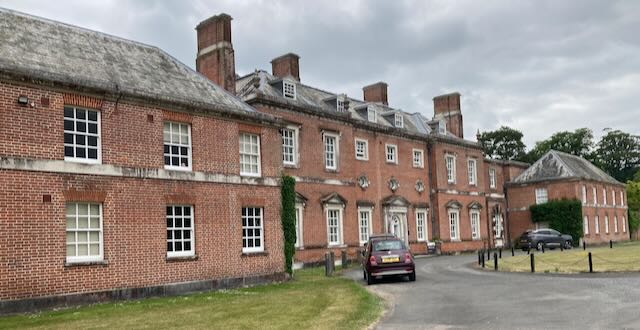Preguntas yes / no con el presente simple del verbo to
be:
Estas preguntas
siempre se contestan con si o no. O sea, con yes or no.
Su estructura es: Verbo be (am / are / is) + sujeto + resto
+?
Ex. Am I beautiful? / ¿Soy
guapa?
Practice answering these
questions:
Am I happy? Yes, I am. / No, I´m not. Are
we happy?
Are you happy? Are
you happy?
Is he happy? Are
they happy?
Is she happy?
Is it happy?
Practice making questions
for these answers:
- Yes, she is tall.
- No, they aren´t cousins.
- Yes, I am Elizabeth.
- No, he isn´t stupid.
- Yes, we are German.
El dato subrayado es el que no aparece en la pregunta. Esto
es porque se trata de la respuesta, que siempre es o sí o no.
Preguntas con
palabras pregunta y el present simple of
del verbo to be:
I – Questions with who: Who
se utiliza cuando preguntamos sobre personas.
Ex. Who are you? I am
Peter. Who is Anne? She is my sister.
¿Quién eres? Soy Pedro. ¿Quién es Ana? Es mi hermana.
Pero se puede usar
con cosas y animales cuando no sabemos que la respuesta a una pregunta es una
cosa y no una persona.
Ex. Who is there? It´s only the wind. / ¿Quién está ahí? Sólo es el viento.
La estructura de estas preguntas es:
Who (palabra pregunta) + am / is/ are (verbo be) + resto +?
Vamos a practicar hacienda preguntas
para respuestas dadas. La palabra subrayada no puede aparecer en la pregunta
porque es el dato por el que preguntamos. Es decir, es la respuesta.
Practice:
1. Susan is my Maths teacher.
2.
We are happy.
3.
They are in the car.
4. My
parents are at home.
5.
Sandra is Irish.
6.
He is an actor.
7. These
boys are footballers.
8.
The dog is noisy.
II – Questions with how: How significa “cómo” y se suele
utilizar con el verbo to be para preguntar cómo está alguien o algo.
Ex. How are you? I am fine. / ¿Cómo
estas? Estoy bien.
How is the weather today? It is sunny today. /¿Cómo está el tiempo hoy? Hoy hay sol.
La estructura para preguntar es:
How (palabra pregunta) +
am/ is/ are (verbo to be) + resto +?
Practice:
1. The children are ver y well.
2. The cat is cured.
3. The lemonade is sweet.
III – Questions with where:
Where es para lugares. Equivale a dónde.
Eje. Where is Sam? Sam is
in the garden.
¿Dónde está Sam? Sam está en el jardín.
Where are we? We are in
Paris.
¿Dónde estamos? Estamos en Paris.
La estructura para preguntar con where es:
Where (palabra pregunta) +
am/ are/ is (verbo to be) + resto +?
Practice:
1.
The boys are in the park.
2.
The park is near the school.
3.
The car
is parked outside.
4.
The book
is in my schoolbag.
5. The milk is in the fridge.
IV- Questions with when:
When es para tiempo. Equivale a cuándo.
Ex. When is the picnic? The picnic is today. /¿Cuándo es el picnic? El picnic es hoy.
La estructura de las preguntas con when es:
When (palabra pregunta) + am/ is/ are (verbo be) + resto +?
Practice:
1.
The football game is tomorrow.
2.
The races are this weekend.
3. Mike´s
party is on Sunday.
4.
The final exams are in June.
5.
Her birthday is in August.
V – Questions with what.
What es para cosas.
Ex. What is that? That is a pencil. / ¿Qué es eso? Eso es un lápiz.
What are those things? Those things are toys. /
¿Qué son esas cosas? Esas cosas son juguetes.
La estructura de las preguntas con what es:
What + palabra pregunta + am
/ is/ are (verbo to be) resto +?
Practice:
1.
This is a tropical
fruit.
2.
A
hat is inside the box.
3.
Those
flowers are roses.
4. The prize is a thousand euros.
VI – Questions with why:
Why equivale a por qué. Estas preguntas se
contestan con because, que es porque.
Ex. Why are you happy? Because I passed a test. / ¿Por qué estás content?
Porque aprobé un test.
La estructura de esta pregunta es:
Why (palabra pregunta) +am,
are, is (verbo be) + resto + ?
Practice:
1.
I am here because
it is Friday.
2. She is tired because she works hard.
3. We are fat because eat too much.
VII – Questions with whose:
Whose equivale a de quién.
Ex. Whose is that? It is mine. / ¿De quién es eso? Es mío.
La estructura de las preguntas con whose es:
Whose (palabra pregunta) +
am/is/ are (verbo be) +resto +?
Practice:
1.
That house is Lisa´s house.
2.
Those
shoes are yours.
3. This cat is my cat.
Si te has fijado bien, te habrás dado cuenta de que todas
las preguntas con palabra pregunta que hemos visto tienen la misma estructura.
Palabra pregunta + verbo be (am, is, are) + resto + signo de interrogación
ANSWERS / RESPUESTAS








.jpg)















No comments:
Post a Comment
Hello! Comments are very welcome. Thank you. / ¡Hola! Los comentarios son muy bienvenidos.Gracias.